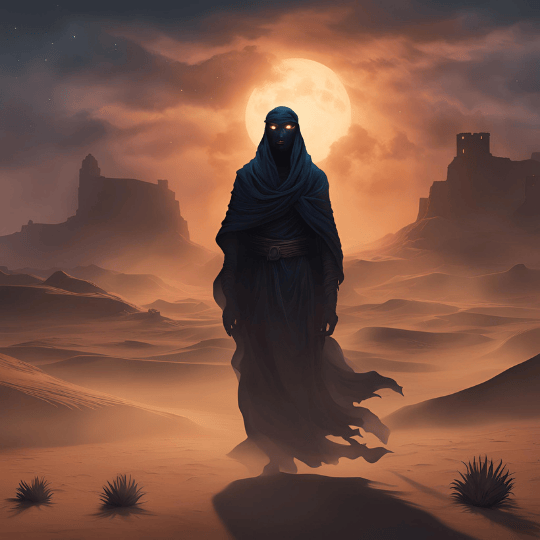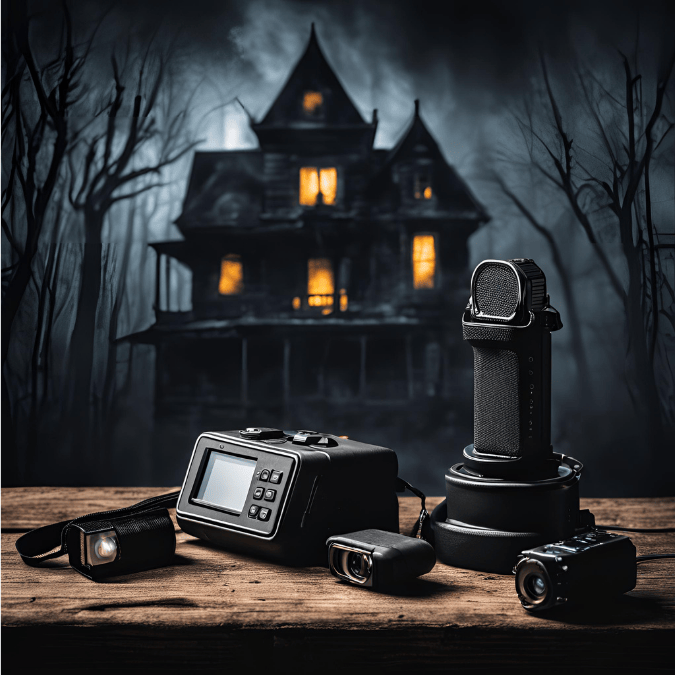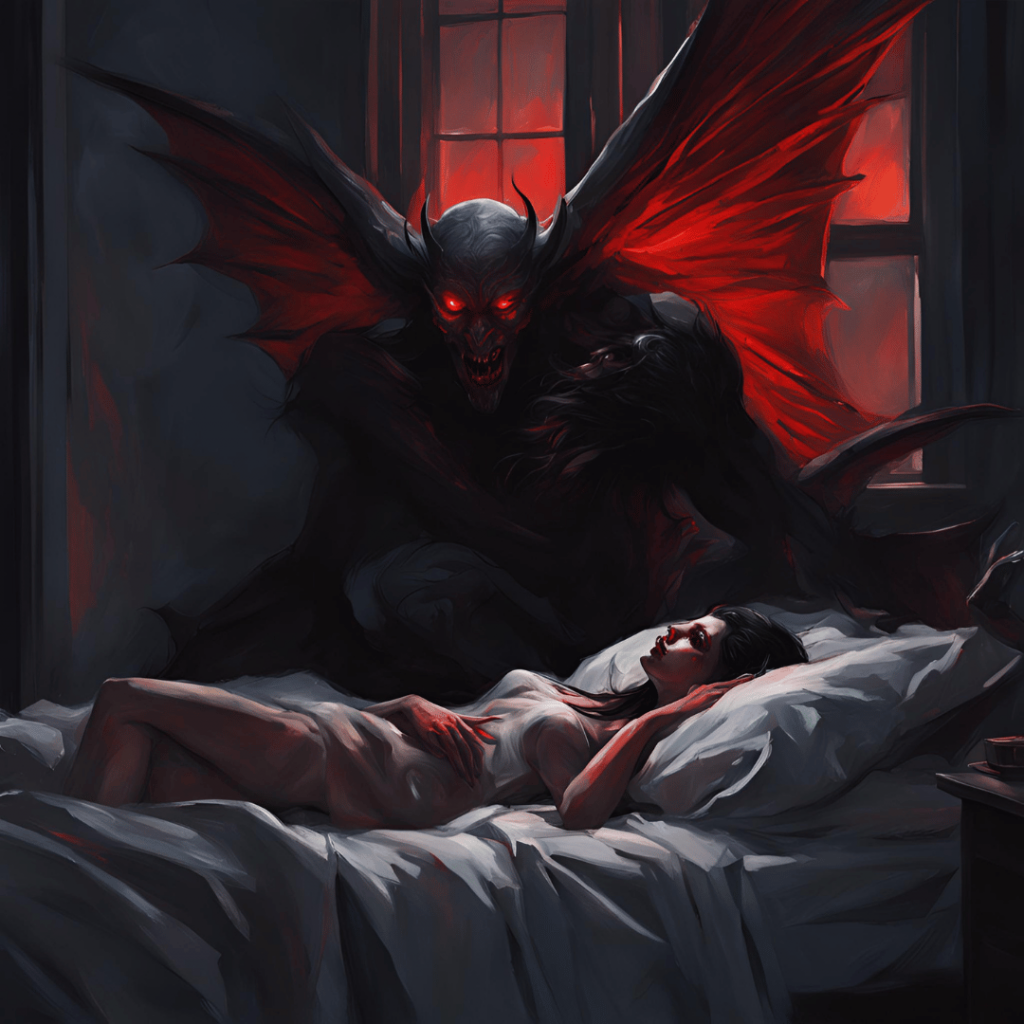The world of the paranormal is filled with tales of spirits, ghosts, and shadowy figures that lurk in the corners of our minds. One of the most mysterious and ancient entities in this realm are the Djinn spirits sometimes known as Jinn. Rooted in pre-Islamic Arab mythology and later adapted by Islamic traditions, these beings are often misunderstood and shrouded in fear, wonder, and myth. Lets explore the origins of the Djinn, their role in religious texts such as the Bible, and how they might present themselves in paranormal investigations.
What Are Djinn?
The Djinn spirits are supernatural entities, often considered to be neither wholly good nor entirely evil. While popular media tends to depict them as “genies” who grant wishes, the actual lore surrounding them is far more complex and dark. The term “Djinn” comes from the Arabic word “janna,” meaning “to hide” or “to conceal,” symbolising their elusive nature and ability to remain unseen by human eyes.
Djinn were believed to inhabit a world parallel to our own, made of smokeless fire, and had free will, similar to humans. They live in deserts, ruins, or dark places and can interact with humans, although they generally prefer not to. While they are mortal like humans, their lives span centuries, making them timeless, elusive creatures.
The Origins of the Djinn
The origins of the Djinn are steeped in ancient Arabian mythology, predating Islam by centuries. In pre-Islamic Bedouin culture, Djinn were considered elemental spirits of the desert and wilderness. They were feared, revered, and often blamed for illness, accidents, and mysterious events. The belief in Djinn spirits wasn’t exclusive to the Arab world; similar beings are found across many cultures, such as the Roman “genius loci” or the Greek “daimones.”
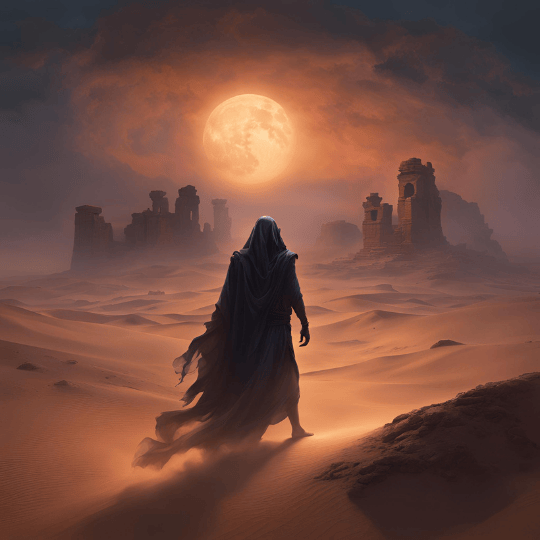
When Islam emerged in the 7th century, the concept of Djinn was incorporated into Islamic theology. According to the Quran, God created three kinds of beings: angels made from light, humans from clay, and Djinn from smokeless fire. Unlike angels, who have no free will, Djinn possess the freedom to choose between good and evil. This freedom makes them closer to humans in their moral complexity, leading to varying interpretations of their behaviour, from malevolent tricksters to benevolent protectors.
The Djinn in the Bible
Though the term Djinn isn’t directly used in the Bible, their essence can be found in certain references to unclean spirits or wandering entities. Scholars have debated whether certain biblical references to demons, spirits, and even certain fallen angels might align with the concept of Djinn in Islamic texts.
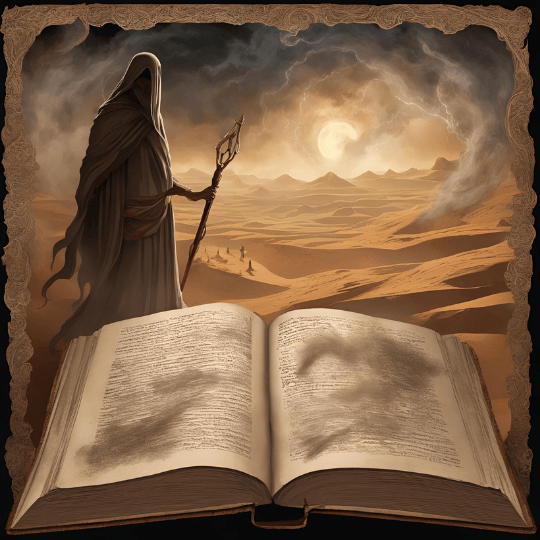
For example, in the Old Testament, references to desert demons and spirits can be found in Isaiah 34:14, which states, “The wild animals will meet with hyenas, and wild goats will bleat to each other; there the night creatures will also repose and find for themselves places of rest.” Some interpretations link these “night creatures” to beings akin to the Djinn. Similarly, the Bible’s mention of “unclean spirits” in various passages suggests entities that may possess some Djinn-like qualities.
Despite not being a central figure in the Bible, scholars argue that the Jinn in the Bible could be interpreted as part of a broader understanding of the supernatural that spans across different religious and cultural traditions.
Djinn in Islamic Tradition
In Islamic theology, Djinn play a more central role. They are mentioned numerous times in the Quran, and an entire chapter (Surah Al-Jinn) is dedicated to them. The Quran describes how Djinn, like humans, are capable of good and evil, belief and disbelief. Some Djinn accepted Islam after hearing the Prophet Muhammad’s teachings, while others remained rebellious, particularly Iblis, the most famous Djinn, often equated with Satan in Islamic tradition.
Iblis refused to bow to Adam when commanded by God, citing his superiority as a being of fire compared to Adam’s clay. For this act of defiance, Iblis was cast out of heaven, becoming a symbol of rebellion and the embodiment of evil. However, unlike Satan in Christian tradition, who is a fallen angel, Iblis is seen as a master of the Djinn, commanding legions of disbelieving Djinn to lead humanity astray.
Types of Djinn
In Islamic folklore, Djinn are classified into various types, each with unique characteristics and powers. Understanding these distinctions can shed light on their role in paranormal phenomena and investigations.
- Marid: The most powerful and feared Djinn, often depicted as massive and strong. They are the classic “genies” of folklore, known for their ability to grant wishes but only after being properly subdued or trapped.
- Ifrit: Known for their fiery nature, Ifrit are often malevolent and are linked with vengeance and destruction. They are believed to reside in ruins and graveyards and can be exceptionally dangerous if provoked.
- Shaitan: Derived from the same root as “Satan,” these Djinn are evil by nature, often serving Iblis in his quest to lead humans away from God.
- Ghoul: These are desert-dwelling Djinn associated with consuming human flesh. They are shapeshifters and can mimic human voices to lure their victims to remote places.
- Silat: These are Djinn known for their cunning and intelligence, often acting as tricksters. They can take on human form and live among people, making them particularly difficult to detect.
Djinn in Paranormal Investigations
Though they originate from ancient mythology, modern paranormal investigations have occasionally recorded instances where the Djinn spirits are believed to have manifested. Their characteristics such as invisibility, immense power, and the ability to shapeshift align closely with the unexplained events often encountered during paranormal investigations.
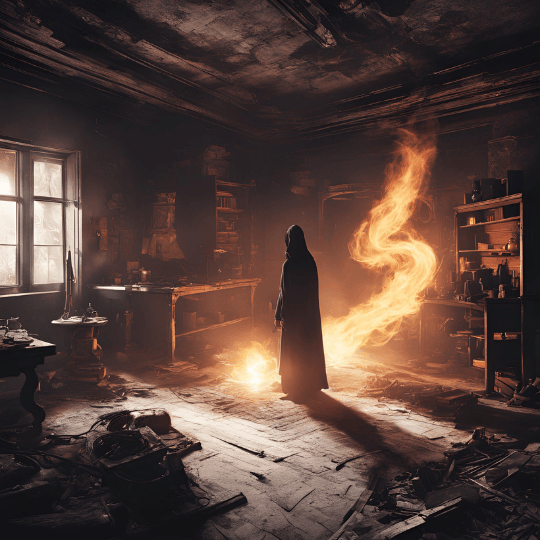
- Manifestations and Interactions: Djinn are believed to be able to manipulate the physical environment, moving objects, creating noises, or influencing a person’s mental state. In many instances, reports of Djinn-like activity parallel that of poltergeists strange knocking sounds, objects flying across the room, and inexplicable temperature changes.
- Possession: Unlike demons, Djinn are more selective in possession, often taking over individuals with weak faith or those who dabble in dark rituals to summon them. In paranormal investigations, possession cases that don’t fit the typical demonic or ghostly profile might be attributed to Djinn.
- Mimicry: Djinn are said to possess the ability to mimic the voices and appearances of loved ones, often to deceive or manipulate their targets. Investigators have reported incidents where disembodied voices or mysterious apparitions take on the form of a family member or friend, only to later reveal themselves as something far more sinister.
- Physical Harm: While spirits and ghosts typically manifest without causing direct physical harm, Djinn are known for their ability to inflict scratches, burns, and other injuries. Investigators have reported inexplicable bruises, cuts, or even choking sensations after attempting to contact or interact with Djinn.
- Energy Drain: Some investigators believe that Djinn feed on negative emotions such as fear, anger, or sadness. During paranormal investigations, when participants experience an overwhelming sense of dread or discomfort, it could be a sign of Djinn manipulation. Unlike traditional ghosts, who may passively haunt a location, Djinn actively seek to affect those around them.
Summoning and Communicating with Djinn
Throughout history, certain rituals and practices were designed to summon or communicate with Djinn, though such actions were often fraught with danger. Islamic scholars warn against any interaction with these entities due to their unpredictable nature.
One common method involved complex rituals, invocations, and the use of talismans or ancient texts. These summoning rituals are not limited to the Middle East; occult practices in Europe and Asia have also sought to tap into the power of the Djinn.
However, attempting to communicate with Djinn during paranormal investigations can lead to unintended consequences. Unlike human spirits, Djinn are not bound to the physical world in the same way, making them far more dangerous and difficult to control. A master of the Djinn would need immense knowledge, preparation, and spiritual fortitude to successfully engage with these spirits without suffering the consequences.
Protecting Yourself from Djinn
Due to their unpredictable and sometimes malevolent nature, it’s important to take precautions when dealing with Djinn in paranormal investigations. Many Muslim practitioners recommend reciting verses from the Quran, particularly Ayat al-Kursi, as a protective measure against Djinn. Other methods include the use of salt or iron, both of which are believed to repel spirits.
Investigators often use traditional ghost-hunting tools like EMF meters and infrared cameras, but Djinn may require additional spiritual safeguards. Sacred objects, prayers, and rituals from various religious traditions are often employed to protect investigators from harm.
See a Post on – Are All Ghosts Thermal Detectable? Ghost Hunting Gear and Kits here.
See also Protection During Paranormal Investigations by Natasha
Conclusion
The world of the Djinn spirits is vast and complex and still a part of modern-day paranormal encounters. Their role as elusive, powerful beings makes them one of the most intriguing figures in both religious and supernatural circles. Whether they manifest as tricksters, protectors, or malevolent forces, the Djinn’s presence continues to captivate those brave enough to seek them out.
As paranormal investigations continue to evolve, understanding the origins and behaviour of Djinn can offer deeper insights into the mysterious events that investigators face. Whether these spirits are tied to ancient mythology or a hidden reality, their power and influence cannot be denied.
If you’re planning your next paranormal investigation, be prepared you may just find yourself face-to-face with the Djinn spirits who have been lurking in the shadows for millennia.
Resources

